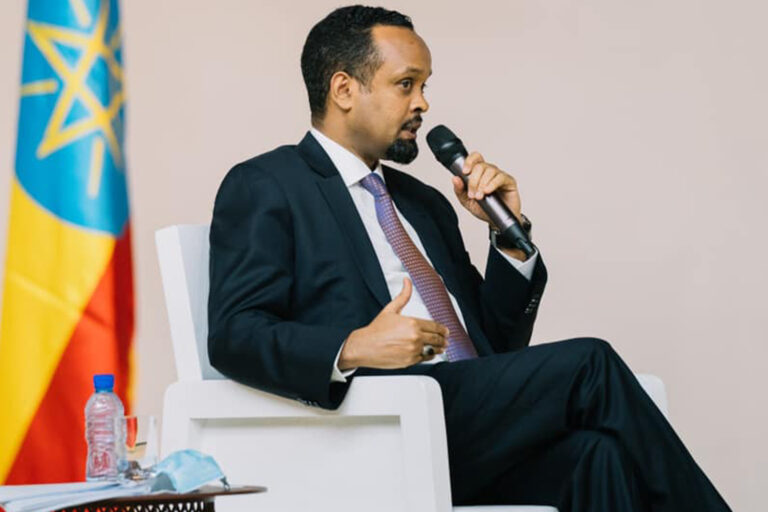Most footballers dream of going down in the history of their sport. Young Mali playmaker Adama Traore is no exception, having already left his mark on the FIFA U-20 World Cup. Like Lionel Messi in 2005, Sergio Aguero in 2007 and Paul Pogba in 2013, he won the competition’s adidas Golden Ball in 2015.
That coveted accolade, which Traore collected after helping Mali take third place in the tournament, was his last to date. It is a barren run that owes nothing to a lack of ambition or talent and everything to the fates conspiring against him. Within a few weeks of his impressive New Zealand 2015 campaign, and after signing for French club AS Monaco, the high-flying Eagle suffered a serious ankle injury.
In a loan spell with Metz, he has played more matches this year than in the previous three. In the process, he showed he has not lost his gift for the game.
Traore’s return to form has come at just the right time for his national team. A regular presence at the CAF Africa Cup of Nations, the Eagles are hoping to reach the FIFA World Cup™ for the first time in their history, with the second round of the continent’s qualifying competition set to begin later this year.
That recipe has worked to perfection for Mali’s youth teams, who have regularly excelled at U-17 and U-20 level. In contrast, the country’s seniors have found success a good deal harder to come by. “I think a lot of it comes down to the mental side of things and perhaps to a lack of experience at major tournaments,” explained Traore. “I’ve got faith, though, and I’m convinced we have the quality to qualify this time.”
There is every reason to believe him. In addition to a revitalised Traore and his fast-maturing colleagues in that impressive U-20 squad, Mali can also call on the clutch of talented youngsters that took the country to the last four at both the 2015 and 2017 U-17 World Cups. And then there are the old hands: captain Molla Wague, front man Moussa Maregua and Mali’s other Adama Traore, one of their chief goal threats.
“Yes, people get us mixed up,” said Adama Traore of his older namesake, who also happens to play for Metz. “We’re friends and people tell us apart by calling me ‘Noss’ after Nostradamus.”
All that ‘Noss’Traore has to do now is to make his own name, or rather surname, in the history of Malian football.
Mali’s Traore out to make his own name
Gov’t expects $500 mln from IMF as direct budget support
$725 mln fresh supplementary budget from the World Bank
The government announced that it has finalized a negotiation with the International Monetary Fund (IMF) to get close to half a billion dollar emergency finance facility (EFF) to fill the budget gap that will occur by the COVID 19 effect in the economy besides USD 725 million fresh supplementary budget support from the World Bank.
Early this week the ministerial committee to tackle the coronavirus has given a response to questions collected from media houses and journalists.
In his response Ahmed Shide, Chair of Economic Affairs Subcommittee and Minister of Finance, said that the government is undertaking several measures to mitigate the effect of the outbreak that massively affects the global economy.
He said Ethiopia’s economy will be affected in two ways; in the local business and the foreign trade. He reminded that there is a significant reduction of flower, textile and garment export that is almost nil, while the export of some other commodities like coffee is going in a good manner.
He added that the country’s foreign currency earnings from remittance have actually dropped because the diaspora is also economically affected because of the virus.
He indicated that there is a tendency that the government revenue is reducing because the slowdown of the economic activity.
He indicated that the approaches on tax support and rescheduling VAT settlement will be disclosed by the government.
“We have been working to identify the sectors that will be significantly affected by the pandemic,” he said.
He hinted that the government mitigation plan will be applied at a time but will take a gradual process as per the behavior of the effect to mitigate the challenge that the country economy faces.
For instance he said that the way out on the tax support and rescheduling the VAT payment has already been tabled for the government and will be disclosed recently.
He said that 4.5 billion birr will be available via NBE and DBE for SME, micro finance, cooperatives to ease the impact from the virus.
“The government’s holistic approaches will be applied,” Ahmed said.
Regarding getting reliefs from international partners and countires the government is strongly working, according to Gedu Andargachew, Minister of Foreign Affairs. He said the government is working to get debt cancelation and settlement extension that is crucial to bypass the challenge that the country faces due to the slowdown of the economy.
“Ethiopia is at the front on the diplomatic arena to get solution for poor countries besides itself,” Gedu said. “Countries should collaborate with each other to alleviate the impact of the virus; otherwise any country could not tackle the current challenge independently,” Ethiopia’s top diplomat said.

Ahmed said that to mitigate the hard currency shortage the government is working to mobilize foreign currency from international sources since the export earnings will not run as per the projection.
Mobilizing the finance from external sources will be seen in two ways. The first is getting general support for the economy that might be a budget support and hard currency earnings, according to the Economic Affairs Chair.
In this regard he said that the negotiation with the IMF to get USD 425 million emergency finance facility (EFF) was finalized and will be disbursed in the near future.
From the stated amount USD 415 million shall be is direct budget support and hard currency earnings for the country that is the balance of payment support for NBE and budget support for Ministry of Finance.
The negotiation with the World Bank is ongoing to get additional USD 725 million supplementary budget.
Recently the World Bank provided the second round of USD 500 million supplementary budget support for the Home Grown Economic Program. The fresh amount will support the initiative under the program.
In general the government is working to mobilize USD 2.15 billion for sectoral, budget and other areas support.
“These will improve the foreign currency earnings of the country and will help the demand of foreign currency for the private sector,” Ahmed added.
He indicated that the government may take several policy measures like possible tax exemption for wage income tax for industry parks and reschedule regular utility fees.
Banks asked to cut loan interest rate by half
The private sector is raising concerns that just rescheduling loan settlement will not have a positive effect for the endangered economic condition because of COVID 19.
Some of the business people Capital spoke stated that financial institutions should consider the cut up to half of the loan interest rate at least for three months to keep the health of the private sector.
They said that it is common that banks rescheduled loan settlement framework for their clients, not only on this bad time.
“It is one good decision that some of the banks rescheduling the loan settlement period,” they said.
But they added, “we are highly suffering on the situation that the country faces that we are also looking for loan interest minimization to pass this situation.”
They claimed that big businesses are already approaching for a huge crisis because their business is highly affected.
“We are expecting from banks to cut the loan interest by half for this coming three months,” one of the business elites, who runs several big investment and businesses, told Capital.
He said that it would be difficult for banks to cut all interests since they have also huge costs, but they have to consider easing the rate that they are now calculating on the loan.
Business elites recommended that now is the time to help each other and save the country. “We are paying wages without active business environment and provide support for those in need that might be directly related with the effect of the COVID 19. At the same time banks should play their role to contribute to calm the situation and support the post coronavirus economic shock,” they said.
Two weeks ago during their virtual meeting bankers request the National Bank of Ethiopia (NBE), to relax the loan rules to mitigate the economic effect that they face in relation with the outbreak of COVID-19.
Yinager Desie, Governor of NBE, told bankers that they have to consider slashing their interest rate.
“Banks should look their interest rate for loans that have its own role for aggravating the inflation in the market,” he said but it was not clear that his address is directly related with the current case or general recommendation.
Since the government decided to lift the 27 percent NBE bill that banks were expected to buy from their every fresh loan approval, banks minimized their interest rates on some credit facilities, however, the country’s loan interest rate is one of the highest.
Currently banks are providing several schemes to play their part to mitigate the adverse effect of COVID 19 besides direct donation for the fund mobilization committee of the government.
Economic experts supported the idea of the reduction of interest rate besides rescheduling the loan settlement. “Companies fixed cost is not reduced, while their usual operation has dropped. Due to that financial institutions should halt some of the interest rates for their customers,” they said.
Coronavirus has significantly affects the economic condition of the country like any other country who reported the global pandemic in their home country. The situation does not only affect the home country trade but the international business like export.
According to the recent policy working paper of the Ethiopian Economics Association the service and manufacturing sector would be highly affected by the outbreak of the virus than the agriculture, which is mainly carried out on household small scale level.






